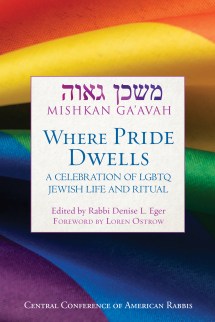Besides coronavirus, there is another epidemic raging in our communities: the ongoing scourge of violence targeting transgender people, particularly trans women of color. Transgender, non-binary, and gender non-conforming people [ɪ] are more likely to be denied equal access to jobs, housing, and medical care, and they are frequent targets of violence—including murder. Trans, non-binary, and gender non-conforming folx are afraid to go to the police for help; when they do seek out legal remedies or safe harbor, they often are further harassed by law enforcement, facing violence at the hands of the very people charged with protecting them.
According to the National Center for Transgender Equality (NCTE), “In just seven months, the number of transgender people suspected of being murdered in 2020 has surpassed the total for all of 2019.” Black and Latinx transgender women have been particularly targeted. NCTE’s US Transgender Survey, which included more than 28,000 participants, found that nearly half (47 percent) of all Black respondents and 30 percent of all Latinx respondents reported being denied equal treatment, experiencing verbal harassment, or being physically attacked in the previous year due to their transgender identity.
The Family Research Project has shown that nearly three out of four trans and gender-expansive youth have heard family members say negative remarks about LGBTQ people, and over half of transgender and gender-expansive youth have been openly mocked by their families for their identity.
These harrowing statistics don’t have to be the norm. There is an urgent need for education and awareness-raising about transgender issues, both in our Jewish communities and in the cities and towns in which we live. As rabbis, we can make our synagogues places of safe harbor and support for transgender and gender non-conforming people, whether they are Jewish or not! Just as we build coalitions with interfaith partners, our congregations can build important bridges, becoming advocates for our Jewish transgender and non-binary members while providing connection, safety, and partnership for the larger transgender and non-binary community. One way we might do so is by reaching out to local LGBTQ organizations to sponsor and host ceremonies for Transgender Day of Remembrance.
Every year, November 20 is designated as Transgender Day of Remembrance (TDOR). The week prior is known as Transgender Awareness Week, with the goal of increasing visibility of transgender people and addressing the painful issues their community faces. TDOR was started in 1999 by transgender advocate Gwendolyn Ann Smith as a vigil to honor the memory of Rita Hester, a transgender woman who was murdered the previous year. The vigil commemorated all of the transgender people lost to violence since Hester’s death, beginning an important annual tradition.
This year, TDOR is on a Friday. Perhaps at your Shabbat evening service, you will invite a transgender activist to speak and educate your community. Perhaps during the Kaddish, you will read aloud the names of transgender victims of murder from this past year. Or in the week before TDOR, perhaps you will schedule a program to help raise visibility and acceptance of transgender, non-binary, and gender non-conforming people.
In my book, Mishkan Ga’avah: Where Pride Dwells, published this year by CCAR Press, there are several powerful prayers and readings for TDOR. Here’s one to consider using:
A Prayer for Transgender Day of Remembrance
Rabbi: We praise You, Holy One, for the gift of life, precious, stubborn, fragile and beautiful; we are grateful for the time we have to live upon the earth, to love, to grow, to be.
Congregation: We give thanks for the will to live and for our capacity to live fully all of the days that we are given;
Rabbi: And for those who have been taken by the devastation of violence used against them. We remember them and claim the opportunity to build lives of wholeness in their honor.
Congregation: We give you thanks for the partners, friends, allies and families who have been steadfast in their love; for the people who have devoted their life’s work to the prevention of violence, support and making transitioning from one gender to another possible with passion and commitment,
Rabbi: For the diligent science, brilliant ideas, and insights that have led to new life-giving procedures, for those in leadership who have acted to provide health care for people who are in transition.
Congregation: We give thanks for those whose prejudice and judgment have yielded to understanding, for those who have overcome fear, indifference, or burnout to embrace a life of caring compassion.
Rabbi: We praise You, Eternal One, for those who have loved enough that their hearts have broken, who cherish the memories of those we have lost, and for those who console the grieving.
Congregation: God, grant us the love, courage, tenacity, and will to continue to make a difference in a world even with the violence aimed towards our community;
Rabbi: Inspire us to challenge and stand strong against the forces that allow needless harm and violence to continue—prejudice, unjust laws, repression, stigma, and fear.
Congregation: Into Your care, we trust and lift up the hundreds of souls who have been tortured and murdered.
Rabbi: We lift up to You our dreams of a world where all are cared for,
Congregation: Our dreams of wholeness,
Rabbi: Our dreams of a world where all are accepted and respected,
Congregation: A dream we know You share.
[ɪ] The Human Rights Campaign has a useful glossary for anyone unfamiliar with these terms.
Rabbi Denise L. Eger is the editor of Mishkan Ga’avah: Where Pride Dwells: A Celebration of LGBTQ Life and Ritual (CCAR Press, 2020) and a past President of the Central Conference of American Rabbis. She is the Senior Rabbi of Congregation Kol Ami in West Hollywood, CA.













